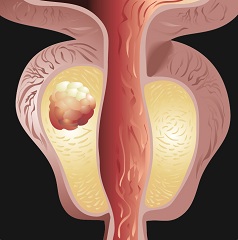Products
Contact Us
CanAg Diagnostics (Beijing) Co., Ltd.
Room 222, 2nd Floor, Building A1, Area A, No.80 Xingshikou Road, Haidian District, Beijing, China
Post code: 100195
Tel: +86 10 8528 8156
Fax: +86 10 8528 8382
E-mail :canag@canag.com.cn
Mobile Phone:17896035653
logistics Department
Tel:010-62883285
E-mail:order@canag.com.cn
PSA is a 32 kDa single-chain, glycoprotein serine protease with a chymotrypsin-like specificity produced by the secretory epithelium of the prostate gland. PSA is normally secreted into the seminal fluid and plays a functional role in the cleavage of the seminal vesicle proteins and the liquefaction of the seminal coagulum. Only low levels of PSA are normally present in the blood stream, and increasing serum concentrations indicate prostatic pathology, including benign prostatic hyperplasia and cancer of the prostate. Determination of PSA is now widely used for detection and management of patients with prostatic cancer and considered as the superior serological marker for cancer of the prostate.
PSA has been shown to form stable complexes with different antiproteases and the dominating portion of PSA in patient serum occurs in complex with α1-antichymotrypsin (PSA-ACT). However there are large variations in the relation between Free PSA and PSA-ACT complex between different individuals. Studies have also indicated that the proportion of Free PSA is higher in benign prostatic disease as compared to prostatic cancer. The antibodies in the PSA EIA have been carefully evaluated and selected to give the same molar response for Free PSA as for the PSA-ACT complex. The PSA EIA thus gives a true “total” PSA value independent of the individual variations of free and ACT-complexed PSA.
 CanAg PSA EIA Prod.No.340-10
CanAg PSA EIA Prod.No.340-10